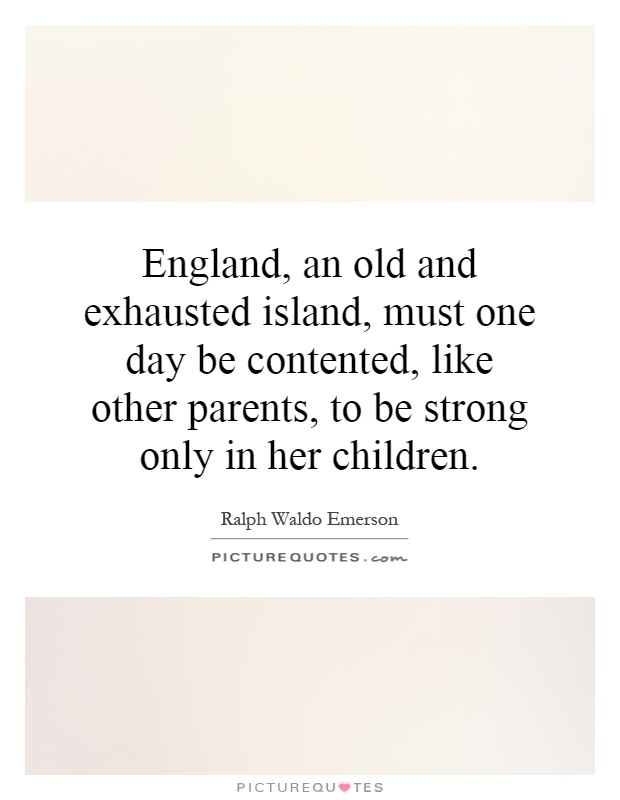England, an old and exhausted island, must one day be contented, like other parents, to be strong only in her children

England, an old and exhausted island, must one day be contented, like other parents, to be strong only in her children
Ralph Waldo Emerson, a renowned American essayist, poet, and philosopher, often explored themes of self-reliance, individualism, and the interconnectedness of humanity in his works. In the quote, “England, an old and exhausted island, must one day be contented, like other parents, to be strong only in her children,” Emerson reflects on the idea that nations, like individuals, must eventually pass on their strength and legacy to future generations.England, with its rich history and cultural heritage, has long been considered a powerful and influential nation. However, Emerson suggests that as time passes, England may become “old and exhausted,” unable to maintain its dominance on the world stage. This idea of decline and transition is not unique to England but is a universal truth that applies to all nations and civilizations.
Emerson’s comparison of England to a parent highlights the idea that nations, like parents, must eventually relinquish their power and authority to the next generation. Just as parents must nurture and guide their children to ensure a bright future, so too must nations invest in and empower their youth to carry on their legacy. This passing of the torch is essential for the continued growth and prosperity of a nation.
Emerson’s emphasis on the strength of future generations suggests that true power lies not in military might or political influence, but in the character, values, and potential of the people who make up a nation. By investing in education, innovation, and social progress, nations can ensure that their children are equipped to navigate the challenges of the future and carry on the legacy of their ancestors.












 Friendship Quotes
Friendship Quotes Love Quotes
Love Quotes Life Quotes
Life Quotes Funny Quotes
Funny Quotes Motivational Quotes
Motivational Quotes Inspirational Quotes
Inspirational Quotes